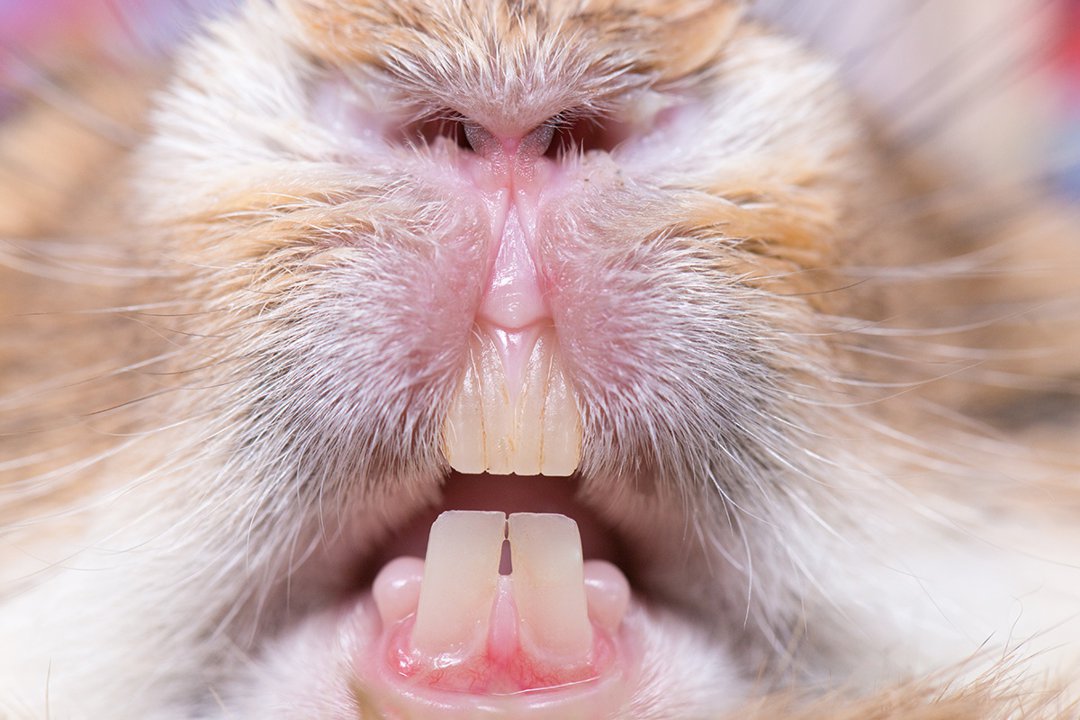
Small Animal Dental Health
Share
As a small animal owner, you want to ensure that your furry friend is happy and healthy. One aspect of their well-being that often gets overlooked is their dental health. Did you know that small animals like bunnies and guinea pigs have teeth that continuously grow throughout their lives? It's true! They can grow 1-2 mm a WEEK! Which is why you must make sure they have an adequate supply of hay, grass or hard gnaws to munch on all the time.
In this blog post, we will explore the importance of dental health in small animals and provide you with some tips on how to care for their teeth.
Why is dental health important for small animals?
Dental health plays a crucial role in the overall well-being of small animals. Since their teeth are always growing, it's essential to keep them in good condition. If their teeth become overgrown or misaligned, it can lead to a variety of health issues, including pain, difficulty eating, and even infections. By taking care of your small animal's dental health, you can help prevent these problems and ensure they live a happy, healthy life.

How can you care for your small animal's teeth?
1. Provide a proper diet: A diet rich in hay and fresh vegetables is essential for maintaining good dental health in small animals. The chewing action required to eat these foods helps wear down their teeth naturally.
2. Offer chew toys: Chew toys, such as wooden blocks or untreated wicker baskets, can help keep your small animal's teeth in check. These toys provide a safe and appropriate outlet for their natural chewing behavior.
3. Regularly check their teeth: Take the time to inspect your small animal's teeth regularly. Look for signs of overgrowth, misalignment, or any other abnormalities. If you notice anything concerning, consult your veterinarian.
4. Schedule regular veterinary check-ups: Regular visits to the veterinarian are crucial for maintaining your small animal's dental health. A veterinarian can perform a thorough dental examination and address any issues before they become more severe.
What are the signs of dental problems in small animals?
It's essential to be aware of the signs that may indicate dental problems in your small animal. Some common signs include:
- Loss of appetite
- Weight loss
- Drooling
- Difficulty eating or chewing
- Swelling or redness around the mouth
- Bad breath
If you notice any of these signs, it's crucial to seek veterinary care as soon as possible. Early intervention can prevent further complications and ensure your small animal's dental health is restored.
Some animals will need to see the vet regularly to file their teeth, no matter how good their diet, as they have misaligned teeth so they don't naturally wear down.
Conclusion
Dental health is a vital aspect of your small animal's overall well-being. By following the tips mentioned in this blog post and staying vigilant about their dental care, you can help ensure that your furry friend's teeth remain healthy and strong. Remember, a little bit of effort goes a long way in keeping your small animal happy and comfortable!
Find out more
Rabbit Dental Health Guinea Pig Dental Advice
General Dental Information for rodents
